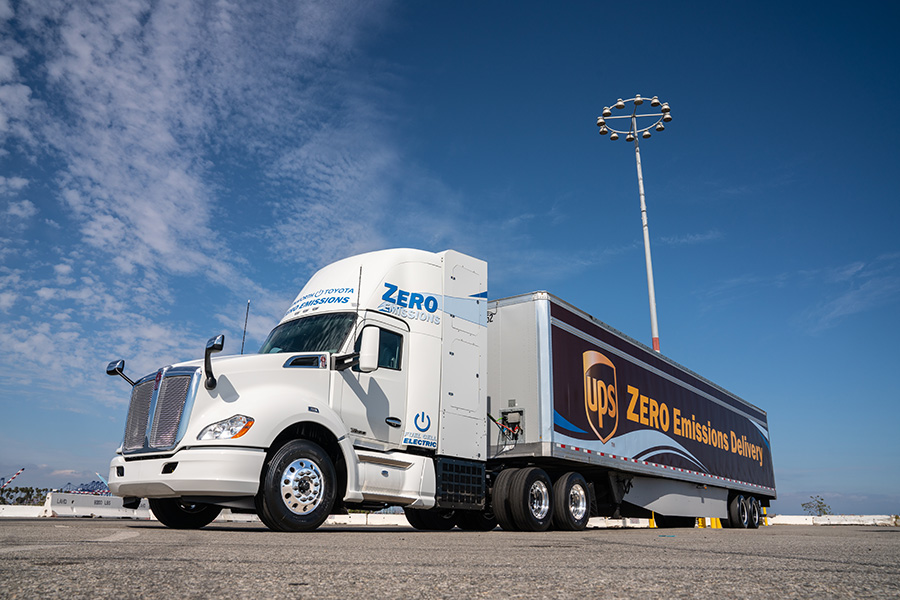
Uruguay is eyeing a pilot project to put 10 hydrogen-powered heavy trucks into service in capital Montevideo, the latest in the country’s bid to eliminate fossil fuel usage.
Uruguay has “a highly successful energy policy, in which we have succeeded in introducing massive amounts of energy from wind, solar and biomass,” Jorge Ferreiro, director of the Verne hydrogen adoption project at Uruguay’s national oil company Ancap, said during the Renpower H2 Latam virtual conference on Thursday.
That focus began to take shape after 2007, when the country’s share of hydro dams and thermal power plants began to be displaced, first by biomass generation, then further diversified by wind parks after 2012. Now, renewable energy supplies 98% of Uruguay’s electric grid.
“The challenge now is the transportation sector, because it represents 70% of imported oil and 64% of C02 emissions,” Ferreiro said.
Uruguay has already introduced a roadway with charging stations for electric vehicles, first along the coast and now encompassing towns in the interior of the country.
So far, the fleet of these vehicles is small: 33 electric buses, 62 taxis and 120 shuttle vans operated by 20 businesses.
But as the country looks to move further away from fossil fuels, Ancap and Uruguay’s energy and mining ministry are exploring green hydrogen for use in transport trucks.
The plan targets heavy trucks, which, due to their weight and high fuel requirements, could be ideally suited to more compact, energy-dense fuel cells.
Uruguay’s 52,000 trucks, of which 20,000 are long-haul, and 3,600 city buses make up just 4% of the country’s total vehicle fleet, but together the trucks account for about 50% of national diesel consumption.
The pilot plan involves 10 heavy autonomous trucks drawing renewables-based electricity from a station in Montevideo to charge their hydrogen fuel cells. For the trial, the trucks will be charged during off-peak times.
The fuel-cell power would avoid the battery recharge problem that has snared other vehicular applications.
Currently, battery sizes for heavy transport are a major barrier for battery-powered trucks, as are charging times that could delay delivery.
By one calculation, batteries could take hours to recharge fully for a 28-ton truck, and take up 32% of its cargo space.
Nevertheless, Ferreiro pegged hydrogen fuel cells as an alternative. Hydrogen fuel cells could take up only 6% of cargo space and charging time for the same truck could drop to 20 minutes.
Beyond reducing diesel use, Uruguay could emerge as first-adopter with hydrogen fueled heavy vehicles, creating an ecosystem of experts and manufacturers who may find themselves in great demand globally if others adopt the technology.
At present, the problem is one of launching the pilot at the right scale.
“For one or two vehicles, this isn’t going to happen,” Ferreiro said, adding that 10 heavy trucks was the “minimal viable concept.”
He estimated that the pilot project would draw off about 0.08% of the power from the station.
Source: bnamericas
Read the most up to date Fuel Cell and Hydrogen Industry news at FuelCellsWorks




